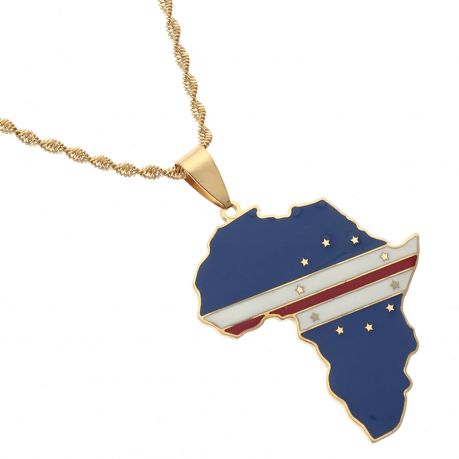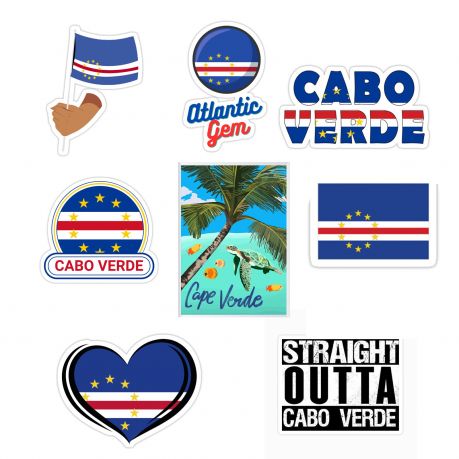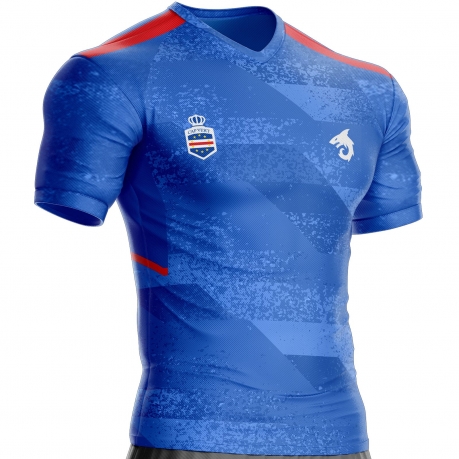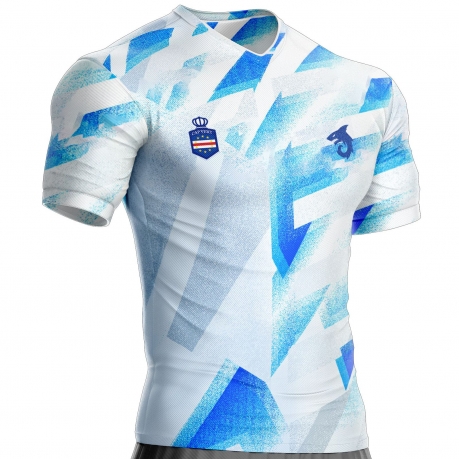The history of Cape Verdean football

The history of Cape Verdean football: An impressive journey
Imagine an archipelago of ten islands lost off the coast of Africa, where the passion for football competes with the force of the waves and the heat of the sun. In Cape Verde, football is not just a sport, it is an integral part of the national identity, a universal language that unites the islands and expresses the pride of a people.
Located approximately 500 km from the African coast, Cape Verde is a volcanic archipelago made up of ten main islands. Far from the beaten track, this small island country has nevertheless managed to make its mark on the international football scene, defying the odds and inspiring respect.
It is the captivating story of this Cape Verdean football, born on dusty fields and carried by the passion of a people, that we invite you to discover. From modest beginnings to the meteoric rise of the “Tubarões Azuis” (Blue Sharks), embark on a journey to the heart of an extraordinary human and sporting adventure.
The beginnings of football in Cape Verde
Football appeared in Cape Verde at the beginning of the 20th century, probably brought by Portuguese settlers. The sport quickly found a favorable response among the local population, attracted by its simplicity and team spirit. In villages and towns, on beaches and wastelands, the round ball has become a symbol of freedom and hope.
Even before Cape Verde's independence in 1975, local championships emerged. Organized informally, often on rudimentary pitches, these competitions were an opportunity for young Cape Verdeans to compete against each other and share their passion for football. More than just a sport, football was a moment of gathering and communion, a way to transcend differences and celebrate Cape Verdean identity.
The influence of Portugal , former colonizer of Cape Verde, is undeniable in the development of local football. The Portuguese training system, focused on technique and team play, has left its mark on the Cape Verdean style of play. Many Cape Verdean players have also played in Portuguese clubs, contributing to the diffusion of Cape Verdean talent abroad.
From its beginnings, football has played an important role in Cape Verdean society. It helped channel the energy and creativity of young people, promote values such as discipline and respect, and forge a sense of national unity. Football has become a real social phenomenon, capable of bringing together the populations of the different islands and giving Cape Verde visibility on the international scene.
The importance of football as a leisure and community sport
Beyond official competitions, football was above all a leisure and community sport in Cape Verde. In the streets and squares, impromptu matches were organized at any time of the day. Football was a way to have fun, let off steam and bond with friends and families.
Major football events, such as the World Cup or the CAN, were experienced with particular fervor. The entire country mobilized to support its national team, the “Tubarões Azuis”. In bars and cafes, supporters vibrated to the rhythm of the matches and celebrated each victory with passion.
Football has played an important role in building the Cape Verdean national identity. It allowed the country to build a positive image on the international scene and give a voice to its population. Football is a source of pride for Cape Verdeans and a symbol of their unity and dynamism.
The birth of the national team (1978-1992)
It was in 1979, four years after Cape Verde's independence, that the Cape Verdean Football Federation was created. This event marked an important step in the development of national football and allowed the creation of a national team, the "Seleção".
Cape Verde's first international match took place in 1978 against Guinea. Unfortunately, the match ended in defeat. It was the start of a learning period for the young selection, which had to face many challenges.
The lack of financial means and adequate infrastructure was a major obstacle. Cape Verdean players often played on rudimentary pitches and did not have access to professional coaching. Additionally, the country's small size limited the number of potential players and made competitive selection difficult.
Despite these difficulties, the “Seleção” showed great combativeness and unfailing determination. The players, driven by immense pride in representing their country, fought on every pitch to bring honor to Cape Verde.
The 1980s and 1990s were a period of consolidation for the national team. In 1982, Cape Verde participated for the first time in the Francophonie Games. Even if the results did not always live up to expectations, the selection gained valuable experience and began to gain respect on the continental scene.
The emergence of talent
During this period, some talented players began to emerge. Among them are goalkeeper Alcides "Nené" Fortes and striker Vítor "Tó" Baptista. These players helped to raise awareness of Cape Verdean football abroad and inspired the new generation of players.
The importance of the diaspora
The Cape Verdean diaspora has also played an important role in the development of national football. Many players born in Portugal or other European countries have chosen to represent Cape Verde. Their talent and experience made it possible to strengthen the selection and make it more competitive.
The birth of the Cape Verde national team marked a turning point in the history of national football. Despite the challenges and obstacles, the “Seleção” showed courage and perseverance. The 1980s and 1990s were a period of learning and consolidation, which allowed Cape Verdean football to prepare for future conquests.
The flight of the “Tubarões Azuis” (1992-2010)
The Tubarões Azuis take flight
It was from the 1990s that the Cape Verde national team, nicknamed the “Tubarões Azuis” (Blue Sharks), experienced a real rise. Driven by a talented generation and the unwavering support of its supporters, the selection has made remarkable progress on the continental scene.
Remarkable progress
In 1992, Cape Verde achieved its first official victory by defeating Gambia. This symbolic success marked the start of a new era for Cape Verdean football. The "Tubarões Azuis" began to distinguish themselves in the qualifiers for the African Cup of Nations (CAN), narrowly losing to more experienced nations.
Participation in continental competitions
In 1995, Cape Verde participated in the World Cup qualifiers for the first time. Even if qualification was not achieved, the selection achieved honorable performances, in particular by keeping Cameroon, future finalist team of the CAN, in check.
The crucial role of the diaspora
The role of the Cape Verdean diaspora has been crucial in the development of the national team. Many talented players born in Portugal or other European countries have chosen to represent Cape Verde. Their contribution in terms of talent, experience and professionalism made it possible to considerably strengthen the selection.
Talented players
Among the key players of this era, we can cite central defender Hélder Pires, midfielder Lito Adiano and striker Marco Soares. These players left their mark on the history of Cape Verdean football and contributed to making the country known on the international scene.
The period 1992-2010 was a period of progress and affirmation for the Cape Verde national team. The “Tubarões Azuis” have acquired new maturity and competitiveness, positioning themselves as a rising force in African football. The following decade would confirm this trend and propel Cape Verde towards a golden era.
Note:
You can add information about important matches or notable moments from this period.
You can also mention the work of the coaches who contributed to the success of the national team.
Golden era and international recognition (2010–present)
2013, a pivotal year
The year 2013 marked a decisive turning point for Cape Verdean football. The national team achieved an exceptional performance by reaching the quarter-finals of the African Cup of Nations (CAN). This historic feat propelled Cape Verde into the FIFA world top 30, a consecration for this small island country.
Historic participations in the CAN
Since 2013, Cape Verde has participated in three editions of the CAN, in 2015, 2017 and 2021. If the selection did not succeed in repeating the feat of 2013, it nevertheless achieved honorable performances, losing often against larger and more experienced nations.
Iconic players
The golden era of Cape Verdean football was marked by the emergence of talented players who took the national team to the heights. Some of the best-known names include goalkeeper Vozinha, defender Ricardo, midfielders Babanco and Garry Rodrigues and forwards Ryan Mendes and Héldon Ramos. These players marked the history of Cape Verdean football and inspired a new generation of talents.
A significant impact on Cape Verdean society
The success of the national team has had a significant impact on Cape Verdean society. Football has become a true factor of national unity and pride for the Cape Verdean people. The exploits of the "Tubarões Azuis" have helped to give a positive image of the country on the international scene and have contributed to its economic and social development.
Football, a symbol of hope and the future
Football is much more than just a sport in Cape Verde. It is a symbol of hope and the future for a young and ambitious country. The “Tubarões Azuis” continue to inspire the population and thrill the hearts of Cape Verdean supporters around the world. The history of Cape Verdean football is a story of passion, perseverance and success. It is proof that even a small country can achieve great things when it is united and determined.
The golden era of Cape Verdean football is far from over. The national team continues to progress and gain respect on the continental and international scene. The future looks bright for Cape Verdean football, which has every chance of continuing to write beautiful pages in its history.
Note:
You can add information about important matches or notable moments from this period.
You can also mention the work of the coaches who contributed to the success of the national team.
You can also talk about the development of women's football in Cape Verde.
Cape Verdean football has undergone an impressive evolution in the space of a few decades. From modest beginnings on rudimentary terrain to international recognition, the journey of the “Tubarões Azuis” is a true success story.
An impressive journey
In the space of 40 years, the Cape Verdean national team has risen among the best African nations, reaching the quarter-finals of the CAN and joining the FIFA world top 30. This success is the result of an undiminished passion for football, hard work and a fierce desire to succeed.
A promising future
The ambitions of the national team remain high. The “Tubarões Azuis” dream of participating in the World Cup and ranking among the best nations on the continent. The development of local football is also a priority, in order to allow young Cape Verdean talents to express themselves and fly the colors of their country.
Football, a living force of Cape Verde
Football is much more than just a sport in Cape Verde. It is a symbol of national unity, pride and hope for a people who have never stopped believing in their dreams. The strength of Cape Verdean football lies in its passion, perseverance and ambition. The future looks bright for this small island country which has already accomplished so much.
Cape Verde is a vibrant example of the power of football to unite people and inspire future generations.









